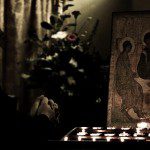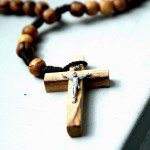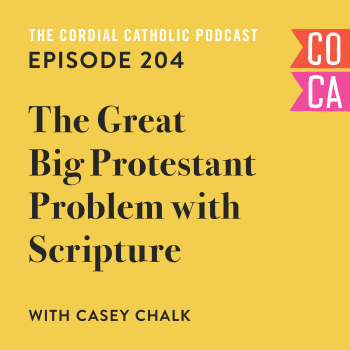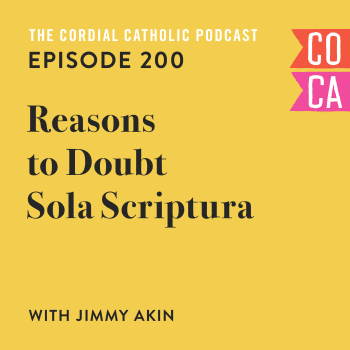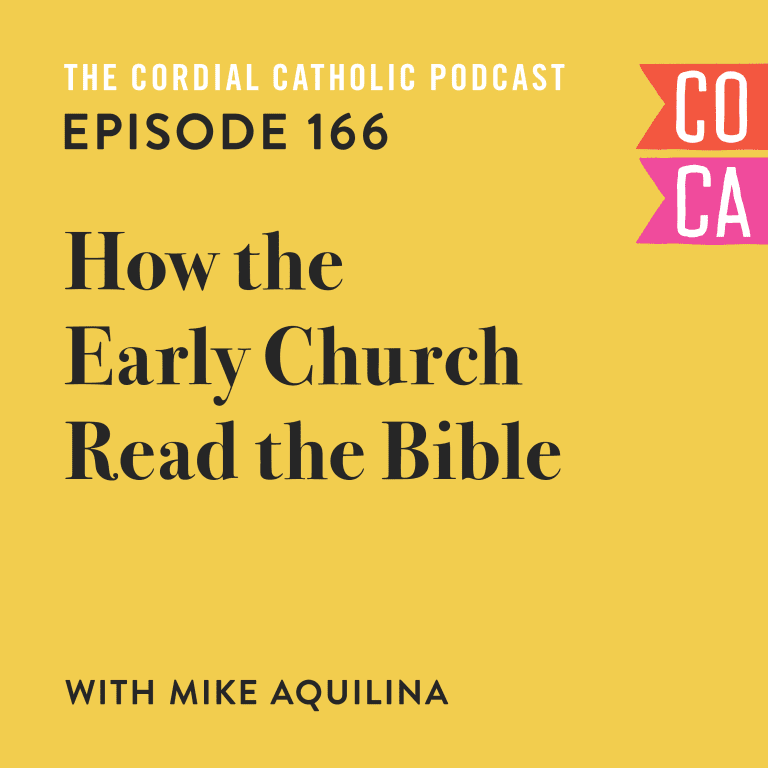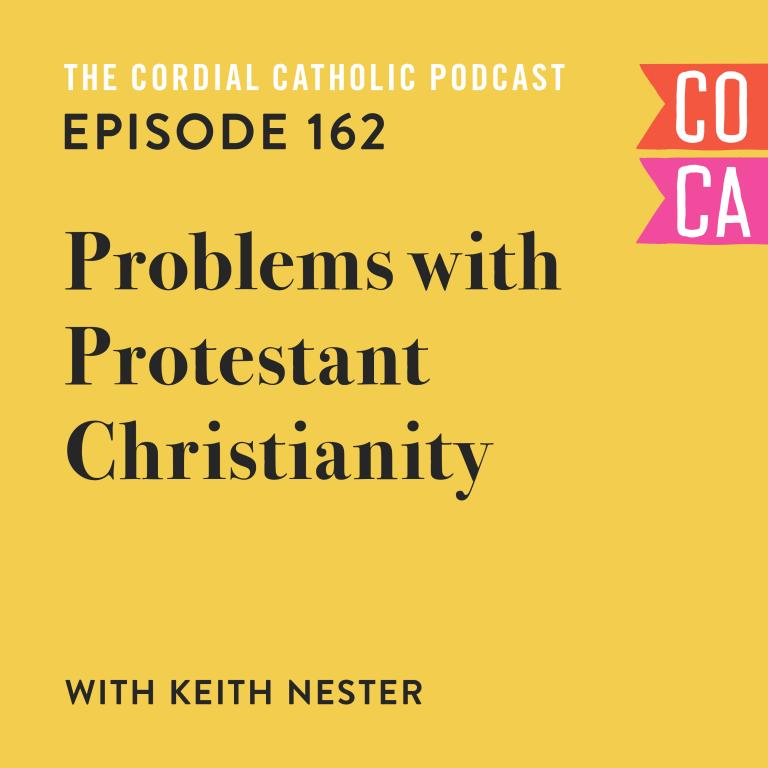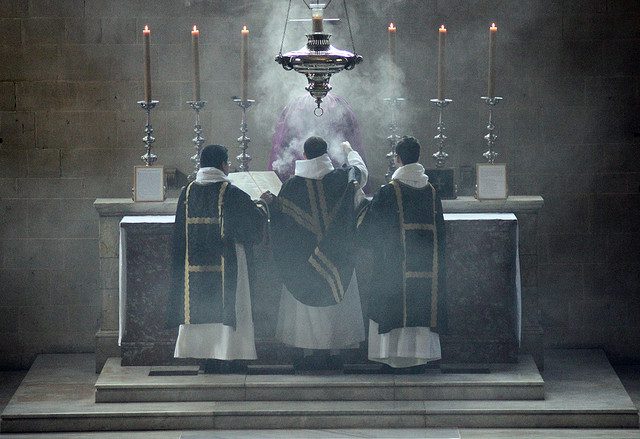
Dale Ahlquist is the brother-in-law of the late, great Larry Norman—arguably one of God’s greatest gifts to Christian music. Ahlquist is also the president of the American Chesterton Society and a convert to the Catholic Church from Evangelical Protestantism. As Ahlquist tells in his own conversion story, it was Norman, an Evangelical, who first encouraged him to read G.K. Chesterton and it was Chesterton, once an Anglican, who convinced Ahlquist to become a Catholic.
As Chesterton himself tells it, one of the cruxes that finally led him to become Catholic after a long and stubborn journey from atheism through the Anglican Church was a deeper understanding of Scripture and a better understanding of the historical formation of the biblical canon.
This was the case in my faith journey, too.
Chesterton explains it, and expounds upon it brilliantly, so it’s worth the work to follow his logic through.
Ahlquist, in an article about his own conversion, sums up G.K. Chesterton’s thinking like this,
Chesterton says he can understand someone looking at a Catholic procession, at the candles and the incense and the priests and the robes and the cross and the scrolls, and saying, “It’s all bosh.” But what he cannot understand is anyone saying, “It’s all bosh — except for the scrolls. We’re going to keep the scrolls. In fact, we’re even going to use the scrolls against the rest.”
This sentiment, when I first happened upon it, spoke so precisely to my experience, “It’s all bosh, except the scrolls.”
Like Chesterton, I could not fathom how the perspective which says: Catholic Church got everything wrong except the Bible.
But I didn’t always think that way.
Whether I realized it or not in the Evangelical tradition from which I sprung up I was the unfathomable thinker that Chesterton describes.
I was the one watching the Catholic procession go by and saying, “All of that is bosh, except those scrolls.”
Somehow those scrolls—the Scriptures on which my Evangelical faith was based—were above “boshness”, even though the bosh predated the scrolls.
Somehow, my way of thinking went, the Bible is reliable and without error even though the tradition it emerged from, the tradition that predates it, is itself fatally flawed.
Whether knowingly or not, that’s what I believed.
I believed that I was capable of drawing a line and making an arbitrary distinction about what, in that ancient Catholic procession, was Christian and what was not.
The Bible, I will take.
The Trinity, I will take.
Prayer to the saints? No thank you.
The Real Presence of our Lord in Communion? No thanks.
This kind of arbitrary rejection and acceptance, on the face of it, seems a little bit odd if not egotistical.
Instead I’ve come to believe that the Bible—those scrolls Chesterton refers to—was put together under the authority of the Catholic Church. This isn’t so much a matter of faith as it is a matter of history. The Catholic Church agreed on which gospels, epistles, and writings ought to be considered a part of the biblical canon. The same Catholic Church that uses incense, that has a celibate priesthood, that encourages its members to pray for the intercession of the saints and the Virgin Mary. This is one and the same Catholic Church. So how can all that be bosh, but somehow the Bible survives?
In the past, I could’ve argued, in good conscience, that the Catholic Church fell into error at some point after putting together the Bible. God established this Church but it didn’t last forever. For good measure, this is the same argument used by Mormonism and the Jehovah’s Witnesses. And it doesn’t make sense, at least not to me, and at least not anymore. Because plenty of traditions and practices that are condemned by Protestant Christians pre-date the collection of the Bible in its current form.
Ancient documents outlining the Mass; church fathers’ pronouncements of the Eucharist as the actual blood and body of Christ; evidence of early veneration of the saints; a sacramental understanding of baptism; the papacy. These are things that pre-date the official canon of the Bible.
How could everything else about the Catholic Church be “bosh” except the Bible—especially when some of those objectionable things came before the Bible?
If the Catholic Church had enough God-given authority to reliably put together the Bible—and we all take that for granted—why and when did that authority sudden cease, and how do we know? If all the trappings and traditions of the Catholic Church is faulty, how can we say the Bible isn’t?
If my journey towards Catholicism could be described as a walk down a wooded trail, this was the sudden and unexpected landslide. If the Catholic Church is “bosh” then it needs to all be bosh and I can’t see a way to reliably pick and choose. I cannot see a what to reliable reject some and take the others.
I cannot see a way to say, “Catholics got it wrong… Except for the Bible.”
Stay in touch! Like The Cordial Catholic on Facebook:

